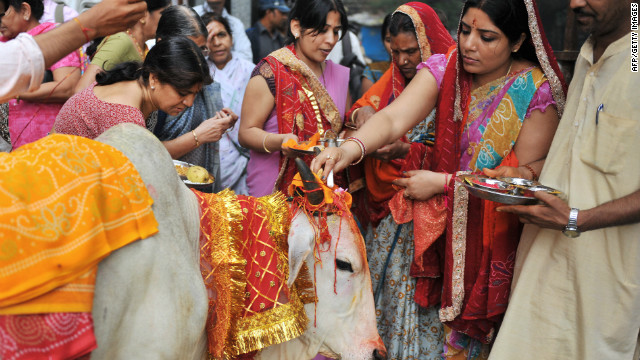
Thanks to the Media which is perennially suffering from Diarrhoea as far as making and selling news is concerned, Sadhus and Shankaracharyas, claiming to represent Hinduism, have started becoming a part of the Breaking News culture. If you would recollect, during the 2014 elections, some Saint or Seer had taken objection to the Namo Namah slogan, another had objected to the Har Har Modi, and yet another had objected to “Ya devi sarva bhuteshu” mantra being modified to serve as a political slogan. Dwarka Shankaracharya had taken this to another level by declaring that Sai baba’s worship was not in accordance with the tenets of Hinduism. The worst part of all these Godmen issuing God’s words from their holy mouths is probably is the fact that millions of adherent Hindus who believe wholeheartedly in Dharma, are totally unconcerned with their diktats. So, inspite of all the objections, people voted for Modi and millions of Indians still continue to refer Sai baba. So much so for the sanctity of the utterances of Godmen!
But then that is how the Hinduism is! Diffused, Omnipresent and yet not rigid but rather fluid. It is less of an -ism and more of a way of life (or Dharma, as our scriptures put it). Unlike Abrahamic religions which have clearly stated dos and donts and scriptures that in many cases form the law, Eastern religions have tended to be more ethereal. Dharmic religions belonging to Indospehere and Chinese/Japanese/Korean religions belonging to Sinosphere tend to deal with ‘may/may nots’ rather than Western religions that are more of ‘Must/Must not’. The result has been an explosion of conflicting opinions, diverse cultural mores and habits that indicate a total lack of cohesion, but scratch the surface and you shall find layers and layers of similarity and commonness. Contrast this with western religions, where homogeneity is the norm. Hence, historically, Inquisitions, Iconoclasms, Takfiri-ism has been more common in Abrahamic religion, whereas in India, adherents of Devi, Shaivaites, Vaishnavites and even Jains, Buddhists and Sikhs have been able to live more harmoniously.
When West met East, notably during the colonial era, West imposed its understanding of culture and society on the East. Manusmriti was understood by British colonizers as the Hindu equivalent of the Quran or the Talmud, which it certainly was not. Practices that the westerners found abhorrent, were termed as irrational (many surely were but some were based on compassion for nature and life). As Hindus became more prosperous and materialistic over a period of time, faith in Godmen and Seers and Saints dropped in this most religious corner of the world. Add to this the inherent fluidity of Hinduism to accept all views (even if they be diametrically opposite) has resulted in it being a religion practiced at home and thus varying from home to home. Barring a few recommended visits to famous temples and prayers at holy rivers, Hinduism is actually a way of life, and not so much a religion in the western sense, thereby giving rise to a situation where you can have Aghoris, whose Hinduism is shockingly different from that of a Vaishnava, call themselves as “Hindu” as their Vaishnava neighbor.
India’s independence and the Nehruvian belief in majority communalism being more dangerous further dented whatever consolidation could have happened amongst Hindus that could have resulted in a rigidification/restructuring of Hinduism. Other than the failed Cow slaughter ban movement and the partially successful Ram Janmabhoomi Andolan, Hindus have remained a diffused and distributed lot, divided into castes, regions, linguistic groups and what not. Combined with the inherent tolerance and respect for other cultures has meant that Hindus would be as likely to pray at a Pir Dargah as at Kashi Vishwanath temple. Given this political and social background, the Seers rejection of any belief as being un-Hindu, smacks of lack of understanding of a religion who they claim to represent.
Which is a sentiment best summarized Rig Veda which says
‘एकम् सत् विप्राः बहुधा वदन्ति‘- Truth is One, though the Sages know it by many names!
